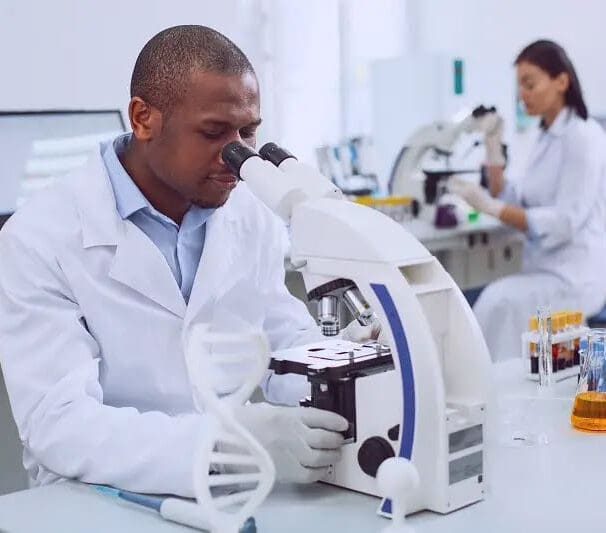HealthProviders DB is a comprehensive database of healthcare providers, including a complete directory of all Clinical Cytogeneticists.
Genetics Healthcare Taxonomy Code 207SC0300X
As of today, the following are the total number of Clinical Cytogeneticists nationally, in your State, and near your location.
Select a State below to view the list by State. Additionally, you can narrow the list by city, among other options, from the Filter Panel, which you can open by clicking the vertical ellipses ⋮ in the upper right corner of the app.
Alaska – Alabama – Armed Forces Pacific – Arkansas – American Samoa – Arizona – California – Colorado – Connecticut – District of Columbia – Delaware – Florida – Federated States of Micronesia – Georgia – Guam – Hawaii – Iowa – Idaho – Illinois – Indiana – Kansas – Kentucky – Louisiana – Massachusetts – Maryland – Maine – Marshall Islands – Michigan – Minnesota – Missouri – Northern Mariana Islands – Mississippi – Montana – North Carolina – North Dakota – Nebraska – New Hampshire – New Jersey – New Mexico – Nevada – New York – Ohio – Oklahoma – Oregon – Pennsylvania – Puerto Rico – Palau – Rhode Island – South Carolina – South Dakota – Tennessee – Texas – Utah – Virginia – Virgin Islands – Vermont – Washington – Wisconsin – West Virginia – Wyoming
Medicare
The following are the total number of Clinical Cytogeneticists who accept Medicare in your State, the number who have opted out of Medicare, and the total number excluded from participation in Medicare nationwide.
The diagram below shows all the Clinical Cytogeneticists across the country, represented by blue bubbles. The larger the bubble, the greater the concentration of providers in that area. Red bubbles represent Medicare-excluded providers, with the larger bubbles indicating a higher percentage of excluded providers in that region. You can change the bubble size to be based on exclusions from the Size menu.
What do Clinical Cytogeneticists do?
Clinical Cytogenetics Physicians analyze and interpret a patient’s chromosomes and genetic material to diagnose and manage genetic disorders, including birth defects, inherited diseases, and certain cancers.
They interpret the results of complex tests, such as karyotyping and FISH, and consult with other medical professionals to develop comprehensive treatment plans. They also contribute to research and the development of new genetic testing methods.
What they do
Interpret results of advanced tests: They interpret data from a variety of genetic tests, including karyotypes, FISH, and next-generation DNA sequencing.
Analyze and interpret genetic material: They study chromosomes from samples like blood, amniotic fluid, or tumors to identify abnormalities, mutations, and other genetic defects.
Diagnose genetic conditions: They use their expertise to diagnose inherited and acquired chromosomal abnormalities, providing crucial information for conditions such as developmental disorders, cancers, and other diseases.
Collaborate with medical teams: They work closely with other specialists, such as pathologists and genetic counselors, to provide a comprehensive picture of a patient’s health.
Consult with referring physicians: They discuss test results and their clinical implications with other doctors to help implement the most beneficial treatment plans for patients.
Oversee laboratory operations: ensure diagnostic laboratory operations adhere to quality control and regulatory standards.
Advance genetic research: They may conduct research projects, contribute to the development of new treatments, and assist in validating and implementing new genetic testing technologies.

